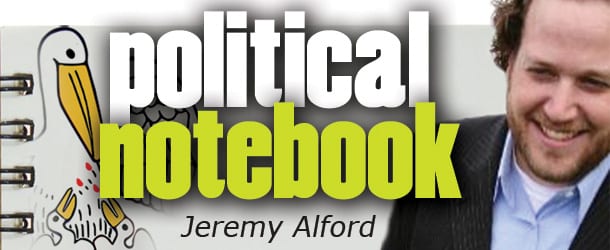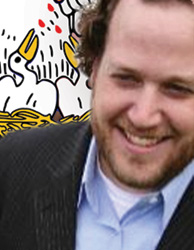The federal government is directing $4.3 million toward the Gulf Coast to restore an active passenger rail service that once transported Louisianans to and from neighboring states.
The Department of Transportation’s Federal Railroad Administration awarded the money to the Southern Rail Commission, on which Louisiana has a seat, to get the intercity project up and running.
“This funding will help Mississippi, Louisiana and Alabama resume passenger rail service between New Orleans and Mobile to enhance regional economic growth and rural mobility,” U.S. Transportation Secretary Elaine L. Chao said in a press release.
Amtrak suspended its tri-weekly service between New Orleans and Orlando in 2005 in the wake of extensive damage caused by Hurricane Katrina. Stations and rail lines were destroyed or left vacant, and the long-distance Sunset Limited trains were paused.
The federal money was awarded under the FRA’s Restoration and Enhancement Grants Program, authorized by the FAST Act. The program provides “operating assistance grants for initiating, restoring or enhancing intercity rail passenger transportation.”
Officials contend the funding will “fill a critical geographic gap in Amtrak’s National Network and provide twice daily roundtrip service with stops in New Orleans; Bay St. Louis, Miss.; Gulfport; Biloxi; Pascagoula, Miss; and Mobile, Ala.
The renewed line is projected to carry 38,400 passengers annually.
Louisiana Targeted For Redistricting
Republican strategist Karl Rove is expecting a “heckuva battle” over redistricting and the legislative races that will precede the process, according to an op-ed he wrote in the Wall Street Journal. Louisiana will certainly be in the mix.
Rove, a top advisor to former President George W. Bush, suggested that “state legislative races in 16 states could determine House control in the 2020s,” and that our backyard could be part of the mix.
Redistricting occurs every 10 years on the state level so that election lines can be redrawn to reflect the latest U.S. Census data. The next round in Louisiana is expected to take place in 2021.
“Both parties are targeting Louisiana and Texas,” wrote Rove. “The Bayou State holds legislative elections this fall. Democrats will try to grab six state Senate seats and narrow the GOP’s House majority in hope that pro-trial-lawyer Republican representatives will join in passing a Democratic-friendly redistricting plan.”
The last round of redistricting in Louisiana equated to a lost congressional district due to outmigration and other population trends.
But don’t expect more of the same, consultant and political strategist John Diez said during a forum on state politics hosted by the New Orleans/Bayou Chapter of Associated Builders and Contractors. “That’s not what we’re looking at this time,” he said.
In a Time magazine piece, author Philip Elliott framed the coming national redistricting process as such: “Every 10 years, politics rewrites itself, starting with the Census. Legislatures in 31 states use the findings to draw the borders of federal congressional districts. In some, nonpartisan commissions draw the lines clinically. In others, it comes down to who has the Sharpie and the least amount of shame.”
Supreme Court Alters Confidentiality Rules
After fielding critiques from editorial writers and courtroom advocates about the handling of misconduct investigations of judges, the Louisiana Supreme Court decided to change its rules for handling private resolutions of judicial complaints.
The changes focus on the state Judiciary Commission, which was created in 1968 by a constitutional amendment. It can recommend that the Supreme Court “censure, suspend with or without salary, remove from office or involuntarily retire a judge” under certain circumstances.
The commission’s oversight is sweeping and includes justices and judges of all courts of the state, plus commissioners, magistrates, justices of the peace and “mayors who perform judicial functions.”
Up until now, the commission was able to carry out investigations and hearings practically in secret, and those who filed the complaints were expected to follow the same guidelines.
Now the commission or its partners can permit judges and others to discuss the matter publicly during certain parts of the process.
“Our rules should protect the integrity of the judicial discipline process while ensuring public trust and confidence. And I believe these rule revisions accomplish that goal,” Chief Justice Bernette Joshua Johnson said upon releasing the rules.
The Judiciary Commission consists of nine members serving four-year terms, including:
— One court of appeal judge and two district judges selected by the Supreme Court.
— Two attorneys admitted to the practice of law for at least 10 years and one attorney admitted to the practice of law for at least three but not more than 10 years; they are selected by the Conference of Court of Appeal judges.
— Three citizens who are not lawyers, judges or public officials; these are selected by the Louisiana District Judges Association.
Gubernatorial Surveys Available
The Council for A Better Louisiana, a nonpartisan good government group, has released the responses of gubernatorial candidates to a comprehensive survey on major issues in the 2019 governor’s race.
Among the major candidates, Gov. John Bel Edwards and Congressman Ralph Abraham filled out the questionnaires. They can be found on the CABL website at cabl.org.
“We have been surveying candidates on important issues for 25 years, and we think it’s important that voters have a chance to see what those seeking our state’s highest office plan to do if elected,” said Barry Erwin, CABL president.
The survey contained 17 questions on subjects including the candidates’ leadership style, the top outcomes they hope to achieve if elected, transportation infrastructure, education, workforce development, job growth, state fiscal policies and criminal justice reform.
“What we hope [to get] from publishing these surveys is that voters will get some additional insights into how the candidates see themselves, what their priorities are and how they would deal with a number of major issues that have been in the forefront of discussion in Louisiana for many years,” Erwin said. “We think that’s the kind of information voters need and want.”
CABL is also partnering with Louisiana Public Broadcasting once again on a statewide televised debate in the governor’s race. It will be held on Sept. 26 on the campus of the University of Louisiana at Lafayette. It will air live statewide on LPB stations at 7 pm.
They Said It
“Money is the mother’s milk of politics.”
— Businessman Lane Grigsby, in Louisiana Record
“Every time we have a campaign finance reform law, people find a way around it. It’s just the way it happens.”
— Grigsby
“We’re going to have to really improve our justice system for you to discover the nefarious ways that people have funded campaigns. Do I expect justice to show that some of this was donated improperly? Probably not.”
— Grigsby
“Good to see my friends … especially my friends the nuns.”
— State Sen. Dan Claitor, R-Baton Rouge, at a ribbon cutting for Our Lady of the Lake Hospital, via Twitter
“The only time I did feel perfectly safe was inside my cell with the door locked.”
— NBC News’ anchor Lester Holt, after spending a couple of nights in Angola Prison, in The Associated Press.
For more Louisiana political news, visit www.LaPolitics.com or follow Alford and Rabalais on Twitter via @LaPoliticsNow.














Comments are closed.